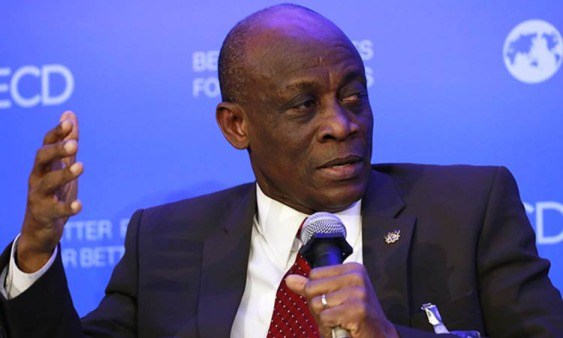Government has been advised to fast track the passage of the tax exemption bill, automate its revenue collection mechanisms and pursue data integration across its various revenue institutions to ensure the country’s post-COVID economic recovery.
Speaking at the 3rd IMANI-GIZ Reform Dialogue on “Business Taxation and the Road to Ghana’s Post-COVID Economic Recovery” held by IMANI Centre for Policy and Education, May 12, personalities including Prof. Godfred A. Bokpin, Seth Terkper, Dr Charles Addae among others discussed the roadmap to the country’s economic recovery.
The dialogue focused on reducing the total burden of business taxation across multiple sectors, rationalising the tax exemptions regime, and using digitalisation and other initiatives to improve tax compliance.
According to IMANI Fellow and Professor of Finance at the University of Ghana Business School, Godfred Bokpin, the government could generate enough revenue without resulting to the introduction of more taxes.
Providing statistical evidence, he argued that Ghana’s theoretical tax frontier (tax potential) across the various tax handles is between 24-25 per cent (GHS104 billion) of GDP instead of the current 12.4 per cent (GHS54 billion).
“The country needs to close the gap, and the incidence of the taxes on citizens will be far less,” he said.
On the issue of company taxes, CEO of Ghana Chamber of Young Entrepreneurs, Sheriff Ghali called for a tiered-based tax system for small businesses instead of the current corporate income tax of 25 per cent for all.
He revealed that although there is a tax exemption regime in place for young entrepreneurs, it has not been implemented. Therefore, called on government to rectify the anomaly.
Former Finance Minister Seth Tekper also raised concerns about how the temporary taxes like the National Fiscal Stabilisation Levy and the Energy Sector Levies (ESLA).
He opined such taxes should be tired and not become frontline tax items as can be witnessed.
For him, government should be focusing on major tax handles like corporate income tax (CIT) and VAT to raise more revenue in the short term.
Meanwhile, Head of Tax Policy Unit at the Ministry of Finance, Daniel Neur has explained that most entrepreneurs are not privy to relevant information and do not use consultants.
According to him, an abridged form of the country’s tax laws has been made available to the public as well as tax information on the Ghana Revenue Authority’s (GRA) platform, hence encouraged entrepreneurs to take advantage of the resources before them.
Mr Daniel Neur, Head of Tax Policy Unit at the Ministry of Finance, argued that the problem with the entrepreneurs is a culture of not using consultants or getting information from people. He asserted that there is so much tax information on the GRA website, and there is even an abridged form of the tax laws.
Latest Stories
-
Providing quality seeds to farmers is first step towards achieving food security in Ghana
4 mins -
Give direct access to Global Health Fund – Civil Society calls allocations
3 hours -
Prince Harry jokes in tattoo sketch for Invictus
4 hours -
Akufo-Addo commissions 200MW plant to boost economic growth
4 hours -
Smallholder farmers to make use of Ghana Commodity Exchange
4 hours -
I want to focus more on my education – Chidimma Adetshina quits pageantry
4 hours -
Priest replaced after Sabrina Carpenter shoots music video in his church
4 hours -
Duct-taped banana artwork sells for $6.2m in NYC
5 hours -
Arrest warrants issued for Netanyahu, Gallant and Hamas commander over alleged war crimes
5 hours -
Actors Jonathan Majors and Meagan Good are engaged
5 hours -
Expired rice saga: A ‘best before date’ can be extended – Food and Agriculture Engineer
5 hours -
Why I rejected Range Rover gift from a man – Tiwa Savage
5 hours -
KNUST Engineering College honours Telecel Ghana CEO at Alumni Excellence Awards
5 hours -
Postecoglou backs Bentancur appeal after ‘mistake’
6 hours -
#Manifesto debate: NDC to enact and pass National Climate Law – Prof Klutse
6 hours

